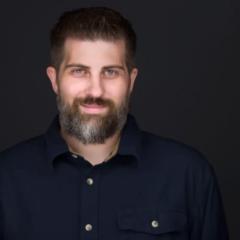
Write something
Could you escape becoming its prey?
Something has been awakened high in lunar orbit. It doesn’t sleep or rest and won’t stop until it has total control. When the power fails on the Okami-13 asteroid mining vessel, it will be up to Dr. Ira Onyx and her team to figure out how to get home safely before it takes over. Run, hide, evade; it is inescapable; it has chosen you; fear is your only hope to survive, becoming its prey. Check out this story and more here: https://www.colintbates.com/books-1 Thanks for listening! I hope you enjoyed these little teasers for the audio version of Prey On coming out later this week.

Can we escape our fate?
What is the true nature of causality? Do we have free will? Can we ever truly outrun our past? For the Master of Arms of the Bellona, Cassian Fabius, the past has become a dead and rotting albatross around his neck. Yet, on this voyage across the Mediterranean Sea, he and his companions may face something more horrifying than his past. Set in 75BCE, Mortifer takes readers into the past, just before the fall of the Roman republic for a high seas horror adventure! I was inspired by a real archeological discovery of a sunken Roman merchant vessel after reading a bizarre scientific paper linking ancient Roman lead to the search for Neutrinos particles. I also wanted to tell a story that felt like an ancient Roman myth rediscovered. Let me know if I achieved my aims. I hope you enjoy it and keep filling your hearts with unimaginable horrors! Because true dread, is limitless and intoxicating. Check the story out here:https://www.amazon.com/Mortifer-Colin-Bates-ebook/dp/B0F95QX535?ref_=ast_author_dp_aw&dib=eyJ2IjoiMSJ9.17gKjS1_dh4_byJd4sTNGwwXAORSIvGIZVLICgoespxGj-BeGz9QSH9LJ0YgW_MX.sUuoEm3NMRc6ZeDaNG0HnOuUg3ZMqiRp-n-rL7Xl8nw&dib_tag=AUTHOR Or here: https://www.colintbates.com/books-1 Available in Paperback, Audio, and Kindle versions. Cover art by me, third image concept art by artist Anna Hyrshchenko.
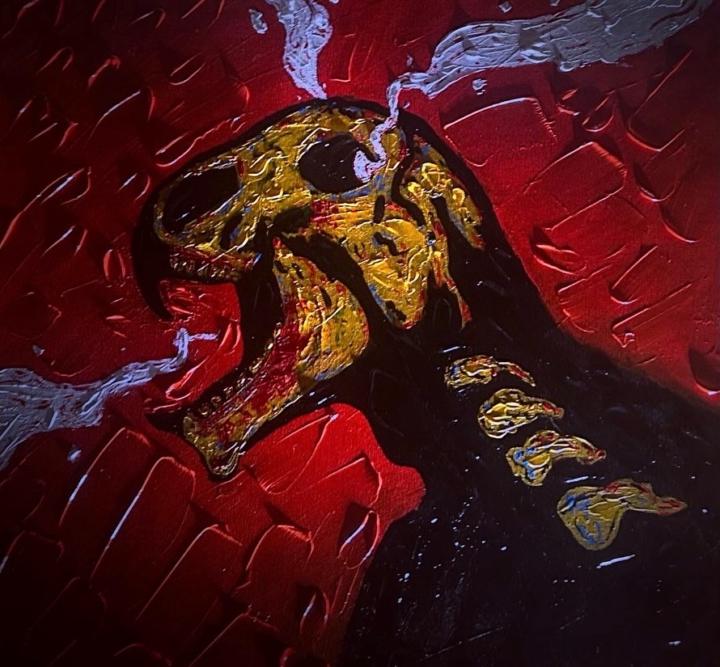
Dare to become barbarism incarnate
He is from the time before. When language and reason were but whispers in the wind, he was the one true lord of blood and violence. He still is. Bow before the Conquering of the Sun, the primeval God of Anger and War.” As October approaches, it’s never too early to start enjoying some spooky horror short stories! Check out The Trophy at https://www.colintbates.com/books-1 Or https://www.amazon.com/dp/B0F2JLVCKB/ref=sr_1_1?crid=3K41J7K9VKH4U&dib=eyJ2IjoiMSJ9.9-e3DA-YlHyW2nfiIC6wgg.BQxlILSntxplxNcN-CE4dHRbDYddqckvK82Z8t6w4uM&dib_tag=se&keywords=the+trophy+colin+t+bates&qid=1743026640&sprefix=the+trophy+colin+t+bates%2Caps%2C91&sr=8-1 Available in Paperback, Audio, and Kindle versions. Help support art and written works created by humans and not large language models or ai generated content. Your support means the world to me and allows me to keep creating content. Madison Niederhauser captures an unforgettable performance in the Audio version. I’ll be giving away some codes for the audio version of the story so comment or message to get yours before they are gone! Huge shout out to Phitoe Art on Fiverr for creating this amazing concept art from the short story (first image). Go check out more of their incredible works! Last images an art project bringing Urochok and his wicked teocalli to life with a model. Thanks for reading! I hope the existential dread hits just right! Sincerely, -CB
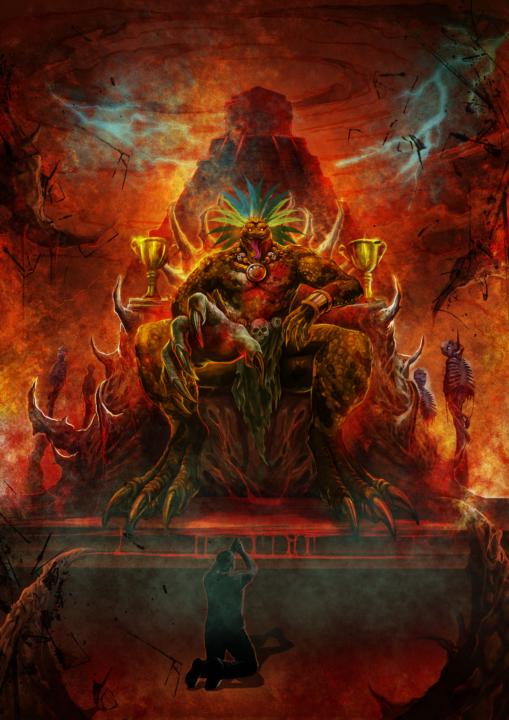
Information is his blood; corruption his wrath.
October is rapidly approaching…if you are looking for scares of the cosmic horror variety that come in easily digestible bite sized packages sure to induce those hits of existential dread you crave, then look no further. I’ve got 4 such stories out with more on the way. Check them out here: https://www.colintbates.com/books-1 Huge shout out to the amazing Steph Grossman for her wonderful edits and Michael Thompson Brown for his stellar audio performance which is coming very soon. I’ve attached a little taste to this post EXCLUSIVELY for this group and nowhere else. Have a great weekend, and never stop traversing the limits of reality and braving the unknown-able horrors that lurk beyond the veil. -CTB PS: giving away some Audio codes for my other stories to sweeten the pot. Message if you are ready to experience the madness for yourself.
2
0
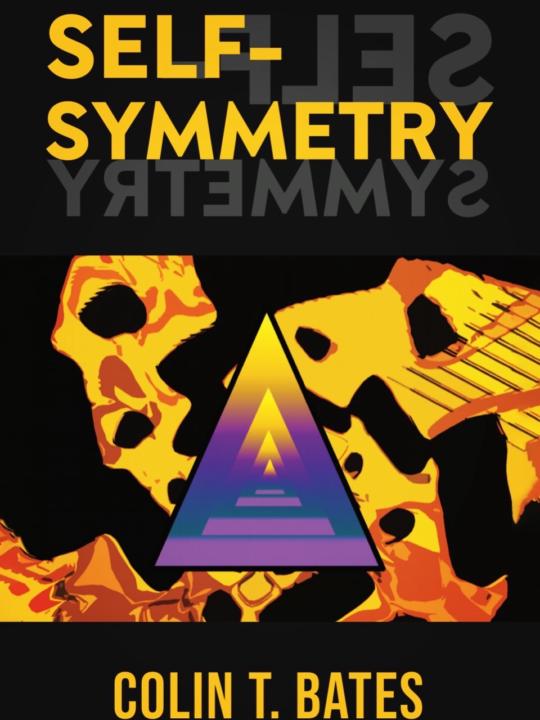
How did you discover HP Lovecraft?
For me it was sitting around a table with my friends about 25 years ago. My buddy had tried Dungeons and Dragons and found an even more interesting game to play - The Call of Cthulhu. After finishing our first round that evening I was so fascinated I asked what it was all about. Another friend had a copy of Rats in the Walls and read it to us. I was so creeped out that when my mom came to pick me up the next day, we went to the bookstore and I immediately went and picked up a few different books. Good times. 😂 How’d you first discover the works of HP Lovecraft?
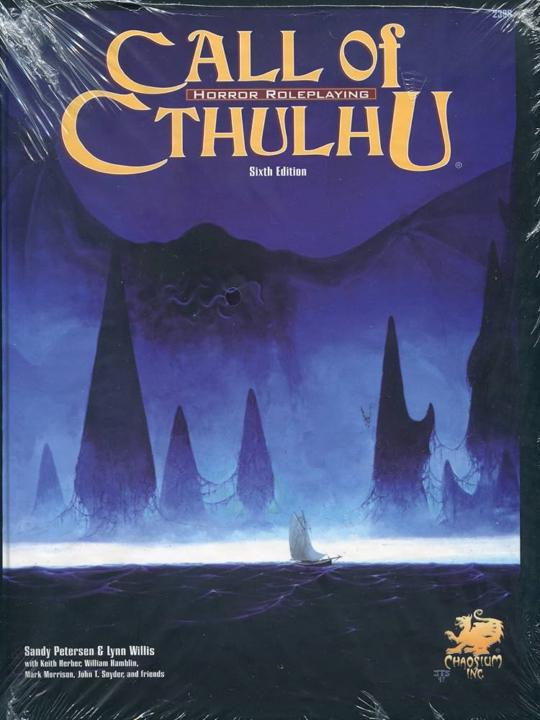
1-9 of 9
powered by
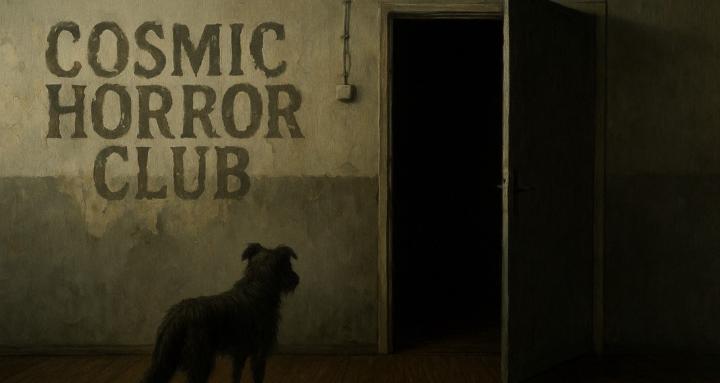
skool.com/cosmic-horror-club-1092
The Cosmic Horror Club connects fans who crave unsettling tales, strange truths, and the slow unraveling of the human mind. Join today!
Suggested communities
Powered by
